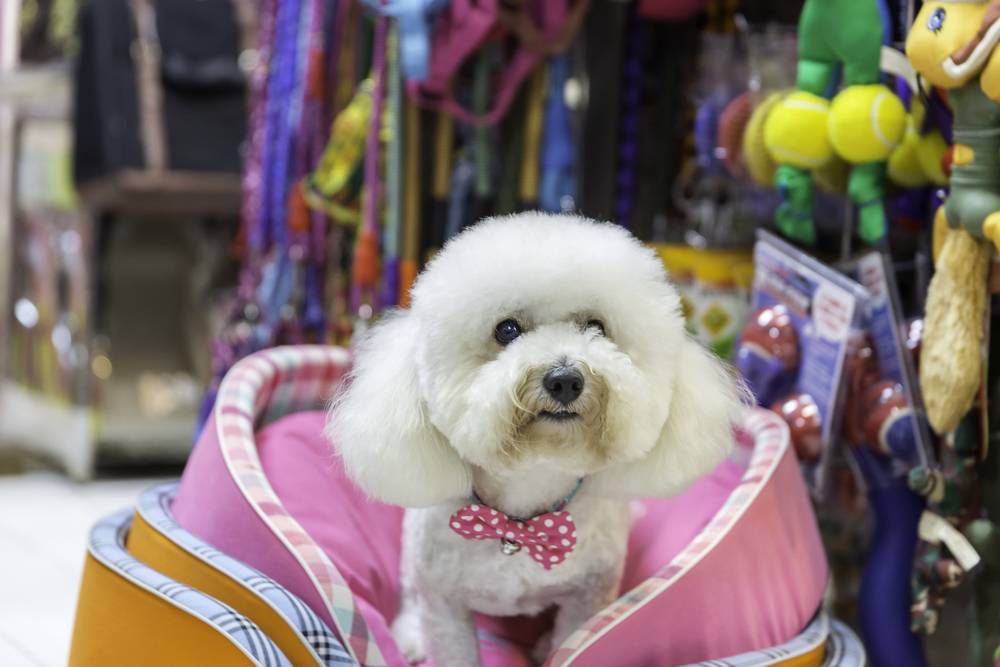 Last updated: May 21st, 2020 2:41 AM
Last updated: May 21st, 2020 2:41 AM
Pet Shop Owner's Duties & Obligations
The Prevention of Cruelty to Animals (Pet Shop) Rules, 2018 were made by the Government of India as an attempt to curb the rampant exploitation of animals by the pet shop owners. Before these rules, there were no set norms to regulate the pet industry, which even lacked the basic infrastructure to keep the animals in a reasonably healthy environment. Under the rules, a pet shop owner must obtain a Registration Certificate from the Animal Welfare Board of the concerned state without which he is/she not authorised to operate the shop. The License has to be displayed at a prominent place in the shop and the customers visiting the shop can ask for the same. For any details on the process of registration, please visit the following page:- https://www.indiafilings.com/learn/pet-shop-license-registration/ If the shop is not registered or is not operating within the standards set by The Prevention of Cruelty to Animals (Pet Shop) Rules, 2018, any person can file a complaint with the State Board in writing and the State Board will start the inquiry through a local authority or the Society for the Prevention of Cruelty to Animals (SPCA). If the pet shop owner comes out to be a defaulter and fails to show any cogent reason behind his failure to abide by the rules, the State Board has the power to cancel the registration of the pet shop. Furthermore, if the appeal against such cancellation is dismissed or rejected, the State Board can seal the pet shop and confiscate all the animals housed inside. The list of states which have formed the animal welfare boards along with the relevant address and website links are provided hereinbelow:- http://www.awbi.org/awbi-pdf/nodalofficers_sawbs.pdfLocation
As per the rules, a pet shop cannot be operated in or close to areas where loud noise can be heard or noxious fumes and odours are emitted. Further, no one can operate a pet shop near factories, butcheries and abattoirs.Infrastructure
As per Rule No. 6 of the Prevention of Cruelty to Animals (Pet Shop) Rules, 2018, no pet shop can be operated on a shanty, shack, pavement or any temporary makeshift arrangement. Further, it is allowed to be operated only if it is located in a permanent structure with proper arrangement for basic amenities, such as clean drinkable water and proper supply of electricity including power back up to provide the animals with a safe, healthy and stress-free environment. This is another provision which makes the hawkers and peddlers on the roadside, dealing in puppies, kittens and birds shoved inside small boxes and rags, absolutely illegal. In addition to the above, every pet shop should have a proper ventilation system, an ideal temperature depending on the species of the animals housed inside along with smoke-detection and firefighting equipment. Furthermore, it is mandatory to have an isolated area inside the shop, where animals infected with contagious diseases can be quarantined and separated from healthy ones.Ideal Space
There should be adequate space for the animals kept inside a pet shop to stand, sit, lie down, turn around, stretch and make any other posture adjustment without any hindrance or impediment. The birds should be kept in cages which allow them to comfortably fly, hop, jump, climb and move around without any disturbance due to paucity of space.Minimum standards to be followed by Pet Shops
- As per Rule No. 7, all the animals are supposed to be inside the shop and no pet shop owner can keep the birds and animals outside the shop, or in the display windows to attract customers.
- All animals offered for sale should be healthy and certified by a veterinarian in writing.
- For every sale made by the shop, a receipt has to be issued to the purchaser and a copy of it shall be retained at the pet shop.
- Sale of underage animals and birds such as puppies and kittens who have not attained the age of eight weeks and birds who are yet to grow mature flight feathers are banned under the rules.
- As per the rules, only micro-chipped puppies are allowed to be sold and all the pet shops should have a functional micro-chip reader at all times.
- The pet shops are only allowed to sell animals acquired from registered breeders. If required, the purchaser can ask for all the relevant details. On the failure of the owner to provide them, the purchaser can file a written complaint with the Animal Welfare State Board.
- The pots and vessels containing food and water for animals should always be available and should be clean and free from any contamination.
- The rooms in which animals are housed shall be cleaned and disinfected often enough to stop the accumulation of excrement and other waste.
- The animals housed together should belong to the same species and age group to protect them from fighting, bullying or mating.
- Animals which can cause acute stress to each other, such as dogs and cats, birds, rodents and rabbits are not supposed to be kept near or adjacent to each other.
- No pet shop owner can leave the pet animals inside a pet shop at night without a sufficient number of attendants.
Popular Post

In the digital age, the convenience of accessing important documents online has become a necessity...

The Atalji Janasnehi Kendra Project that has been launched by the Government of Karnataka...

The Indian Divorce Act governs divorce among the Christian couples in India. Divorce...

When an individual has more than a single PAN card, it may lead to that person being heavily penalised, or worse,...

Employees Provident Fund (PF) is social security and savings scheme for employee in India. Employers engaged...


